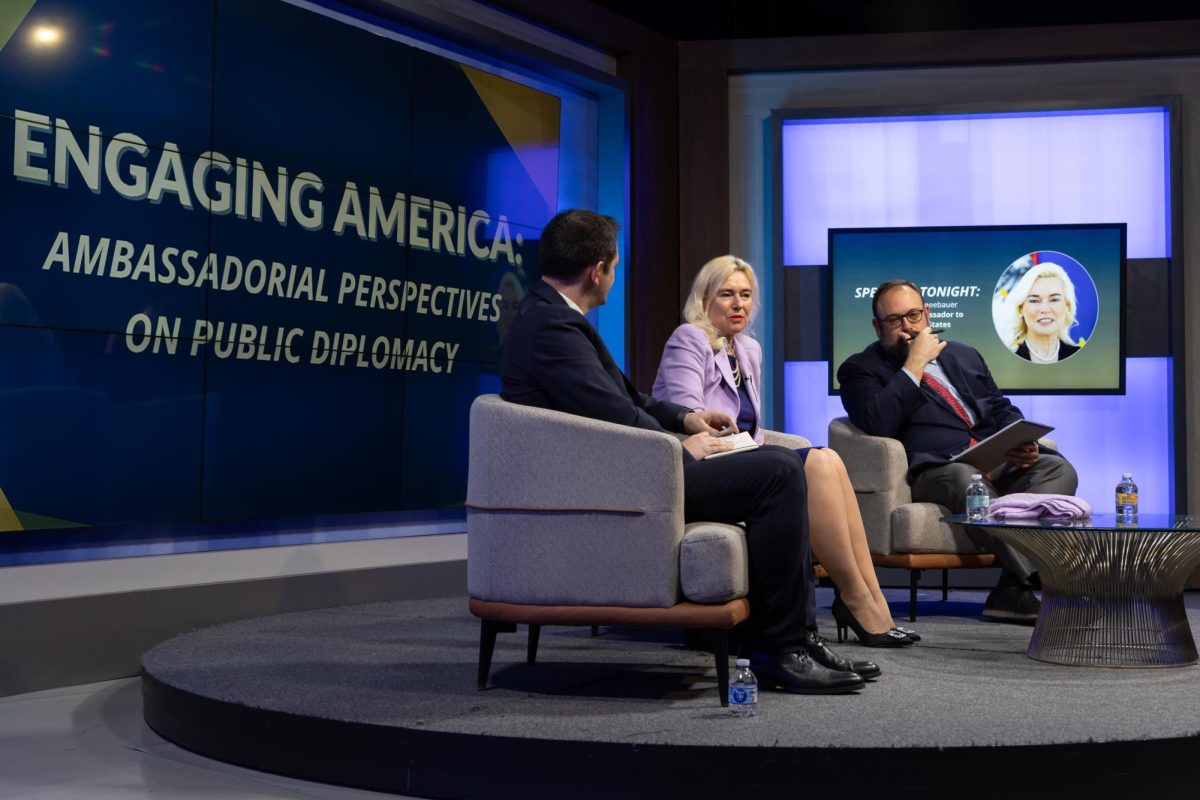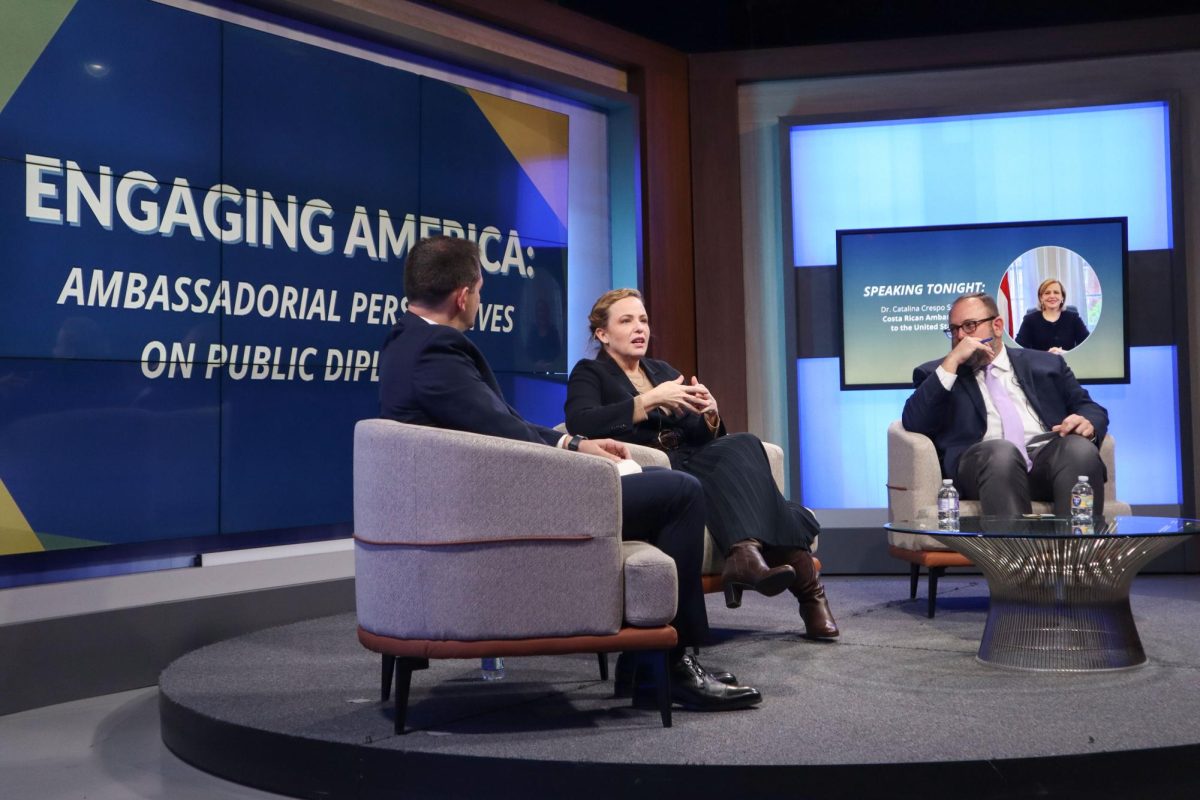By Arunmoy Das, Reporter
October 30, 2025

Marcela Matallana | Photographer
The Iraqi Ambassador to the United States said he hopes to to shift Americans’ perception of Iraq from a country defined by war to one celebrated for its history and culture.
Nazar Al Khirullah, who has served as Iraq’s ambassador to the United States since 2023, said he aims to use cultural diplomacy and more personal exchanges with Americans to rebuild Iraq’s image abroad and strengthen its partnerships with the United States. The Institute for Public Diplomacy and Global Communication hosted the event as part of its “Engaging America” ambassador series, which brings ambassadors to GW to discuss their strategy of collaborating with the United States.
Al Khirullah said he is working to change the image he thinks many Americans have of Iraq, from seeing the country as built around war and violence, to an image that highlights Iraq’s culture, art and contributions to world civilization. He said he aims to use this approach to increase Americans’ desire to build partnerships with the country and strengthen diplomatic ties.
“When I come to Washington, D.C., I found one of the biggest challenges and part of my priority, how to change image around here,” Al Khirullah said. “Because often, people affected by the media, the image for Iraq, it’s war, it’s Daesh, which is Islamic State terrorism.”
He described Iraq as having a great civilization he aims to highlight through cultural diplomacy, especially by connecting with Americans through the arts. He said Iraq has partnered with American museums and universities to bring Iraqi art and culture, like paintings and food, to the United States for Americans to engage more closely with Iraq’s culture.
“It’s about soft power, by music, by fashion, by art, by food, by different meaning of communication,” Al Khirullah said. “And I found it really working because American people really enjoy it. They found it completely different, especially with the richness of our civilization.”
Al Khirullah said the Iraqi Embassy has also hosted cultural events that highlight Iraq’s heritage, like a recent exhibition featuring more than 600 varieties of Iraqi dates, programs he said help Americans see the country beyond politics and war.
“A simple thing, yes, but the meaning actually has a huge effect, and it’s worked for us,” Al Khirullah said. “And it’s really interesting, I enjoy it myself, but I think this is the best way because this kind of public diplomacy.”
Al Khirullah said he also hopes to deepen academic and cultural ties between Iraq and the United States by expanding student exchange and research programs. He said Iraq has sent thousands of students to American universities and hopes to continue partnerships and exchange programs that allow professors and students to visit each other’s countries.
“We do believe part of our connection with United States, it’s not only the benefit we are going to have in terms of education itself, but the connection with different cities, with different states, with the mixture of people and young people coming together,” Al Khirullah said.
Al Khirullah said he has traveled to universities in states like Iowa and Nebraska to connect with schools outside D.C. and build those partnerships. He said during his trips to other states, he realized that diplomacy with the U.S. not only requires ties to national politics in D.C. but also understanding other parts of the country and their culture.
“We try to invest upon every single opportunity to create a partnership,” Al Khirullah said. “From my visit to different state, I did understand that education, trade, economic relation, you are not going to do it in Washington, D.C., you are going to do it in the state.”
Al Khirullah said building trust is essential to diplomacy and requires consistency and openness from diplomats, virtues he thinks can be strengthened through cultural exchanges that lead to greater mutual understanding.
“If you deal with the other side of negotiation, not as an enemy, as a partner, we need to understand what their priorities, what their fear always is about compromise,” Al Khirullah said.





